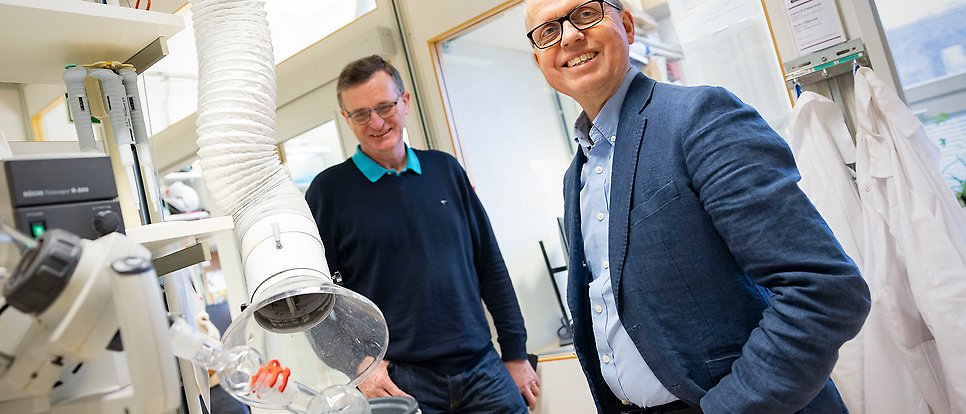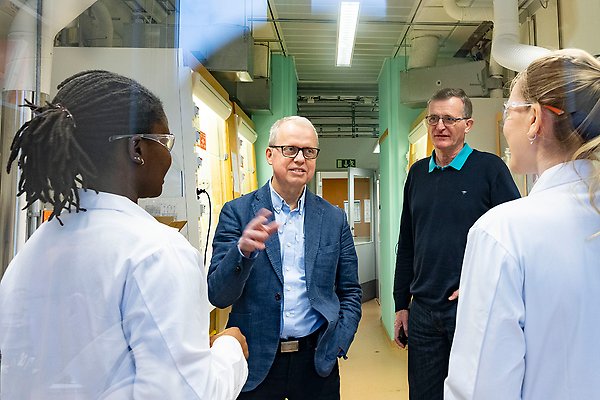Research breakthrough in fight against resistant bacteria

The researchers are working with a substance class that no bacteria has yet developed resistance against. Photo: Mikael Wallerstedt
Researchers at Uppsala University have identified a new class of antibiotics with potent activity against the multi-drug resistant bacteria that WHO pinpoints as the most critical to develop novel treatments for. "That our compound can cure bloodstream infections in mice models indicates great potential," says Anders Karlén, Professor at the Department of Medicinal chemistry.
Less than a century after the discovery of penicillin, bacteria once again pose a growing threat to global public health. Recently, an international study identified infections caused by resistant bacteria as one of the world's leading causes of death, but today, several decades since the discovery of the most recent new antibiotic class to reach the market, researchers at Uppsala University report on a long-awaited breakthrough in the scientific journal PNAS.
“We have identified a molecule that is highly active against the protein LpxH, which many Gram-negative bacteria use to synthesize their outermost layer of protection. These include the multi-resistant bacteria Escherichia coli and Klebsiella pneumonia, pinpointed by the World Health Organization as being the most critical to develop novel treatments for. The fact that our compound can cure bloodstream infections in mice models indicates great potential,” says Anders Karlén, Professor of Computer-aided drug design.
The project is one of five programmes receiving support from ENABLE-2, the international antibiotic platform coordinated at Uppsala University's Faculty of Pharmacy. Here, Swedish biotech companies and European research groups can, after assessment by an independent committee, be granted the support required to take promising molecules through the early stages of antibiotic development.
“The path to an approved drug is both long and resource demanding, and academic research groups seldom have access to the necessary assays or the financial power. In our case, the support from ENABLE and ENABLE-2 has been decisive for us to reach where we are today, and now the final tuning of our project awaits before we exit ENABLE-2 and enter the next phase towards what we hope will result in a new antibiotic.”
With focus on a protein not previously used as target for antibiotic treatment, researchers are working with a substance class that no bacteria has yet developed resistance against.

Anders Karlén and Diarmaid Hughes lead the work. Photo: Mikael Wallerstedt
Diarmaid Hughes, Professor of Medical Molecular Bacteriology, states that to develop genuinely new antibiotics comes with challenges, but also that several of the thresholds have now been crossed with continued promising results. Thus, giving hope of taking the next step already this autumn.
“We have every reason to look optimistically at our project’s future, but we are also aware of the amount of work and various obstacles that remain before we are ready to enter clinical trials. Therefore, it is very important to continue to fill the pipeline with new antibacterial drug candidates, making initiatives like ENABLE-2 so incredibly important.”
Magnus Alsne
Publication
- The article Antibiotic class with potent in vivo activity targeting lipopolysaccharide synthesis in Gram-negative bacteria is published in Proceedings of the National Academy of Sciences (PNAS)
- ENABLE-2 is a platform that offers project support in the development of antibacterial drugs. It is coordinated at the Faculty of Pharmacy, Uppsala University.
